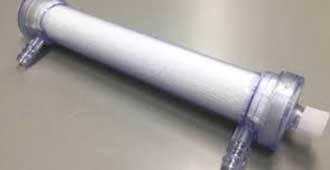Japan Expansions: Sumitomo Chemical to expand capacity for LCP; Kaneka to increase capacity for biopolymer

Sumitomo Chemical has decided to build additional production lines for its liquid crystal polymer (LCP) Sumikasuper, which is a super engineering plastic, at its Ehime Works (Niihama city, Ehime, Japan). In the Sumitomo Chemical Group, LCP is produced at Sumitomo Chemical’s Ehime Works and the Harima Works of the company’s subsidiary Taoka Chemical Co., Ltd. (Harima, Kako-gun, Hyogo, Japan). This expansion will increase the group’s production capacity by approximately 30%. The new production lines are scheduled to be completed in the summer of 2023.
LCP, which possesses excellent thermal resistance, flowability and dimensional stability, has been used for a broad range of applications, including electronic components for PCs and smartphones. Sumitomo Chemical has steadily expanded its LCP business and built its capacity to ensure a stable supply of the product by building on its strengths, which include R&D capabilities for offering polymer materials that meet customer needs, integrated production and sales operations that cover the product line ranging from resin to compounds*, and thorough technical support for customers around the globe.
Demand for LCP is continuing to grow strongly as the rollout of 5G data communications systems is progressing at scale, while electric vehicles are becoming more popular on the back of accelerated efforts to mitigate environmental impact. To immediately address a recent tightening of the global supply-demand conditions, Sumitomo Chemical has decided to construct new facilities to increase its production capacity for LCP.
The company adds it will consider further capacity expansion as the LCP market is expected to grow rapidly supported by higher-speed, larger-volume data communications and advances in the field of mobility.

In other news, Kaneka Corporation says that it will significantly increase production capacity for Kaneka biodegradable polymer Green Planet, with an additional 15,000 tonnes/year production of polyhydroxyalkanoates (PHAs) to its current 5,000 tonnes/year.
In Japan, the Act on "Resource Circulation for Plastics", slated to go into effect in April of this year, will mandate a reduction in single-use plastics. Kaneka says its Green Planet PHA products hold promise as an innovative solution against environmental harm caused by single-use plastics due to their highly compostable characteristics, while maintaining similar functionality as traditional plastics.
Green Planet (PHBH) is a biopolymer produced by microorganism biofermentation using plant oils. Green Planet resins and compounds break down in both soil and water at the end of life depending on environmental conditions.
Green Planet compounds are already being used to make straws, cutlery, coffee capsules, bags, films and other applications. These applications alone amount to over 5 million tonnes/year.
Kaneka says the number of inquiries it is receiving from brand holders is growing rapidly and Kaneka will expand its supply capabilities to meet growing demand.
Kaneka plans to further increase its production capacity in Europe and America, where demand is also rising. Green Planet has business potential on the order of hundreds of thousands of tonnes, and will be one of the core products in Kaneka's business portfolio.
Green Planet can be used in a wide variety of applications, and this range is expected to grow even further in the future. For this reason, the new production plant is viewed as a foundation for future process technology development. By operating this new plant, Kaneka plans to further develop new products, promote productivity improvement and cost reduction, through process innovation. The benefits from such process innovation will thus be applied to future capacity expansions, it adds.
(IMA)Subscribe to Get the Latest Updates from IMA Please click here
©2022 Injection Moulding Asia. All rights reserved.














